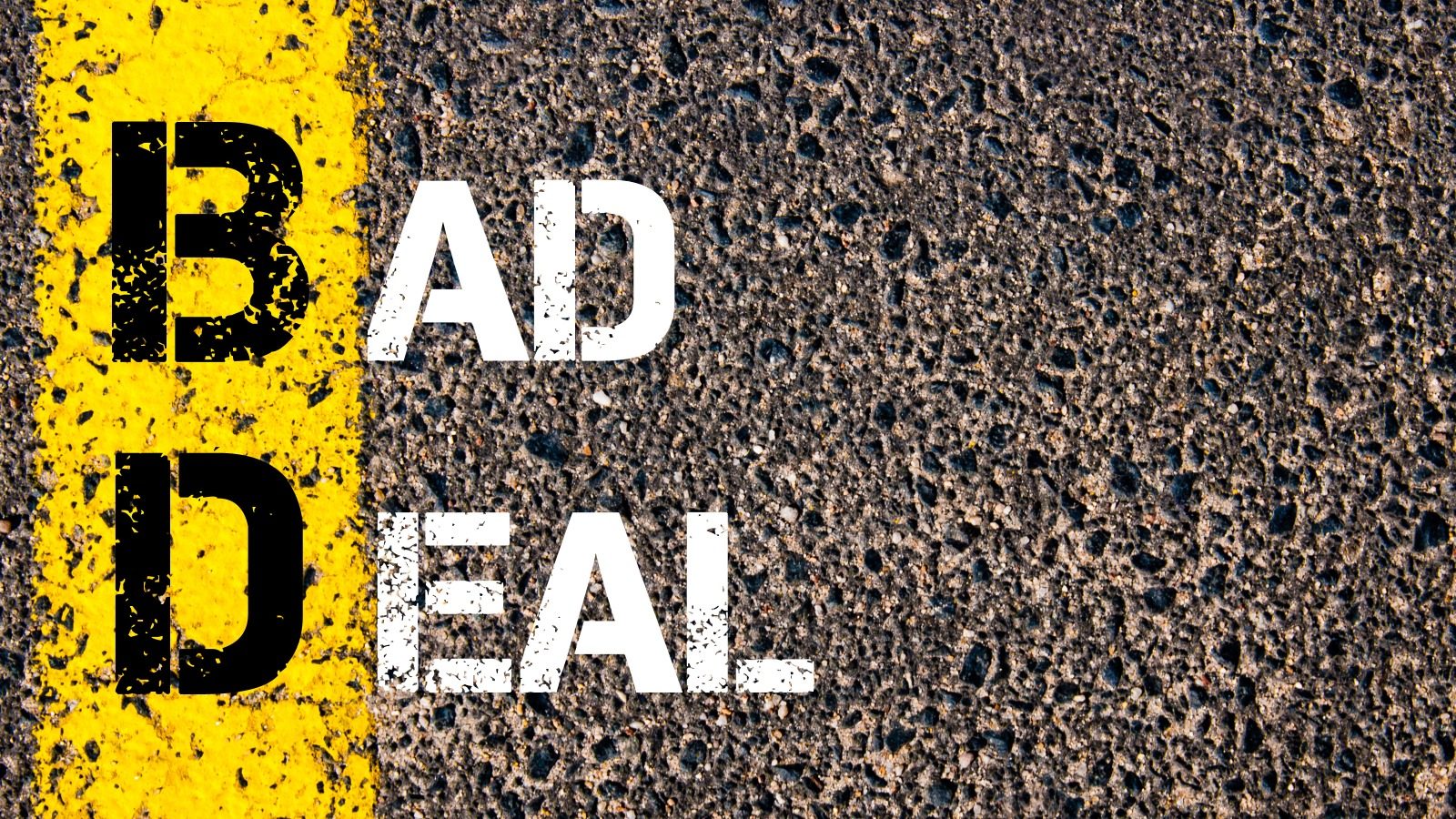Thursday morning, DraftKings CEO Jason Robins publicly said something that should very much concern Illinois lawmakers, regulators, and gambling consumers. He indicated that if things keep going the way they are going in Illinois, bettors there will start seeing a lesser product than ones offered in other states.
“Yes, I think tweaking pricing is something you need to consider,” Robins said. “I think if it ends up being treated as taxable revenue, then there’s really no benefit to [pass through a surcharge] versus incorporating into the pricing.”
In answering analyst questions during a second-quarter earnings call about the state’s new per-wager tax, Robins suggested it is possible the state of Illinois will tax the surcharge that DraftKings, Fanatics Sportsbook, and FanDuel plan to implement Sept. 1. Doing so would, in fact, be the state taxing a tax. That’s bad tax policy, Adam Hoffer, excise tax policy expert and research economist of the Tax Foundation, told InGame. But it’s not against the rules.
“Technically government can tax a tax,” he said. “We call this tax pyramiding, and it is most often the result of poor tax design somewhere along the line. This happens more often than you would think, especially with sales taxes.”
From the sports betting industry’s perspective, there’s been a lot of “poor tax design” going on in Illinois the last year or so.
In May 2024, at the request of Gov. JB Pritzker, state lawmakers raised the digital sports betting tax from a flat 15% to a sliding scale that tops out at 40% for the biggest producers. A year later, lawmakers added a progressive per-wager tax — operators are now paying 25 cents for each of the first 20 million bets placed on their platform in a year, and 50 cents for bet Nos. 20,001 and beyond.
DraftKings, Fanatics, and FanDuel have plans to pass those costs through to consumers — and don’t expect them to be shy about flashing a giant notice on Illinois screens saying this is a government fee — while at least three other operators have imposed a minimum bet in Illinois.
And did we mention that the city of Chicago is also considering adding its own per-wager tax? Twenty percent of Illinois’ residents live in Chicago and, if any of them wager, they may be hit with a 50-cents per bet tax. The Chicago City Council staff projects the city could take in more than $10 million per year if the tax is levied.
Bye-bye, innovation
In all cases, the two biggest operators in the state would be penalized for being good at their jobs. FanDuel would face a more than $70 million tax bill from the state per-wager tax alone, while DraftKings would owe more than $60 million, according to an analysis of FY 2025 by InGame. Third-place BetMGM’s projected hit would be just $3.2 million.
That’s on top of paying a tax on adjusted gross revenue. In FY 2024, Illinois operators paid the state $156.9 million in taxes. In FY 2025, that number ballooned to $304.9 million following the introduction of the progressive tax scale. Add that to the increase with the per-wager tax, a tax on the per-wager tax, and the city of Chicago’s proposed per-wager tax and … well, Illinois consumers very well may start getting a lesser product than consumers in other states.
That said, DraftKings and the lobbying group it belongs to, the Sports Betting Alliance, have been threatening change for the worse in Illinois for more than a year now. But odds in the state are the same as they are in other states — operators have told InGame that the technology needed to tailor odds to specific states is complicated — and except for the imposition of a surcharge or a bet minimum, there don’t appear to be any other significant changes across platforms in Illinois.
But even if DraftKings or other operators don’t make good on the promise of change for the worse, Illinois consumers are already getting shafted. Hoffer pointed out that if Illinois operators are spending their time trying to figure out how to negotiate the new tax landscape, then they’re probably not spending time developing new products. And if Illinois operators are writing bigger tax checks, then they are probably also offering fewer promotional opportunities to customers.
And, see ya, small guys?
Then there are the smaller platforms such as Circa Sports. In expanding outside of Nevada, Circa has been mindful about where to operate. The company has chosen what were — at the time — low-tax, business-friendly jurisdictions. Under the first tax increase, Circa’s annual tax burden jumped 5%.
In hard numbers, the per-wager tax won’t hit Circa as hard as its competitors. But consider this — Circa Sports has annual revenue of just under $15 million. DraftKings just reported nearly $1 billion in revenue in one quarter.
InGame projects Circa, which so far has not announced how it will handle the per-wager tax, would have paid nearly $100,000 in additional taxes in FY 2025. DraftKings, if the state decides to tax the surcharge, would pay more than $70 million in additional taxes.
And what about Rush Street Interactive? In legalizing digital sports betting, lawmakers did all they could to try to protect the hometown business, including creating an 18-month runway for Rush Street to go live online ahead of the big guys. The plan backfired and, five years later, the regional wagering company has now been slapped with an increased tax burden, just like everyone else.
How much more can any of these companies take?
Combine a lousier product with fewer choices and less enticement to play, and Illinois may see its market dry up as customers head to neighboring Indiana, Iowa, Kentucky, and, starting Dec. 1, Missouri to play. The highest tax rate among those states is 14.25% in Kentucky, while Iowa charges operators 6.75%.
Worse yet, consumers may bypass the legal U.S. market altogether and go offshore — the very situation lawmakers were trying to eliminate by legalizing and regulating online sports betting in the first place.
Illinois No. 50 in ‘fiscally stable’ rankings
From a broader view, gambling companies are not the only ones getting yanked around by Illinois lawmakers and regulators. Ranked by U.S. News & World Report as the least “fiscally stable” state in the U.S., Illinois under Pritzker had raised fees or taxes 70 times in 15 years before the latest budget was released. And the raises weren’t just on “sin” products like alcohol, cigarettes, or gambling. They were on things that affect everyday citizens — income tax, gas, telecommunications, occupational tax for businesses.
Hoffer said there is another concern that could arise out of Illinois’ “tax-pyramiding” scheme. Three operators decided to pass the per-wager tax onto consumers. From Robins’ vantage point, it seems very possible that that pass-through will be taxed, which in turn would cost operators additional tens of millions of dollars.
The other six operators in Illinois have either announced a bet minimum or taken no action in relation to the per-wager tax — which means there is no surcharge to tax. So while DraftKings, Fanatics, and FanDuel are potentially looking at double taxation, their peers are not. Which means that the cost of doing business for three operators will be more than for the other six.
“Companies that add the surcharge and are taxed again because of it will be at a competitive disadvantage compared to companies that simply increase their minimum wager and absorb the charge,” Hoffer said. “The non-neutral treatment of identical products is a symptom of poor tax design.”
Imagine what Illinois’ most famous son — President Abraham Lincoln, a Republican — might think of what his state has become.
Maybe it’s time to change the state slogan from “Land of Lincoln” to “Prairie of Poor Tax Design.”







